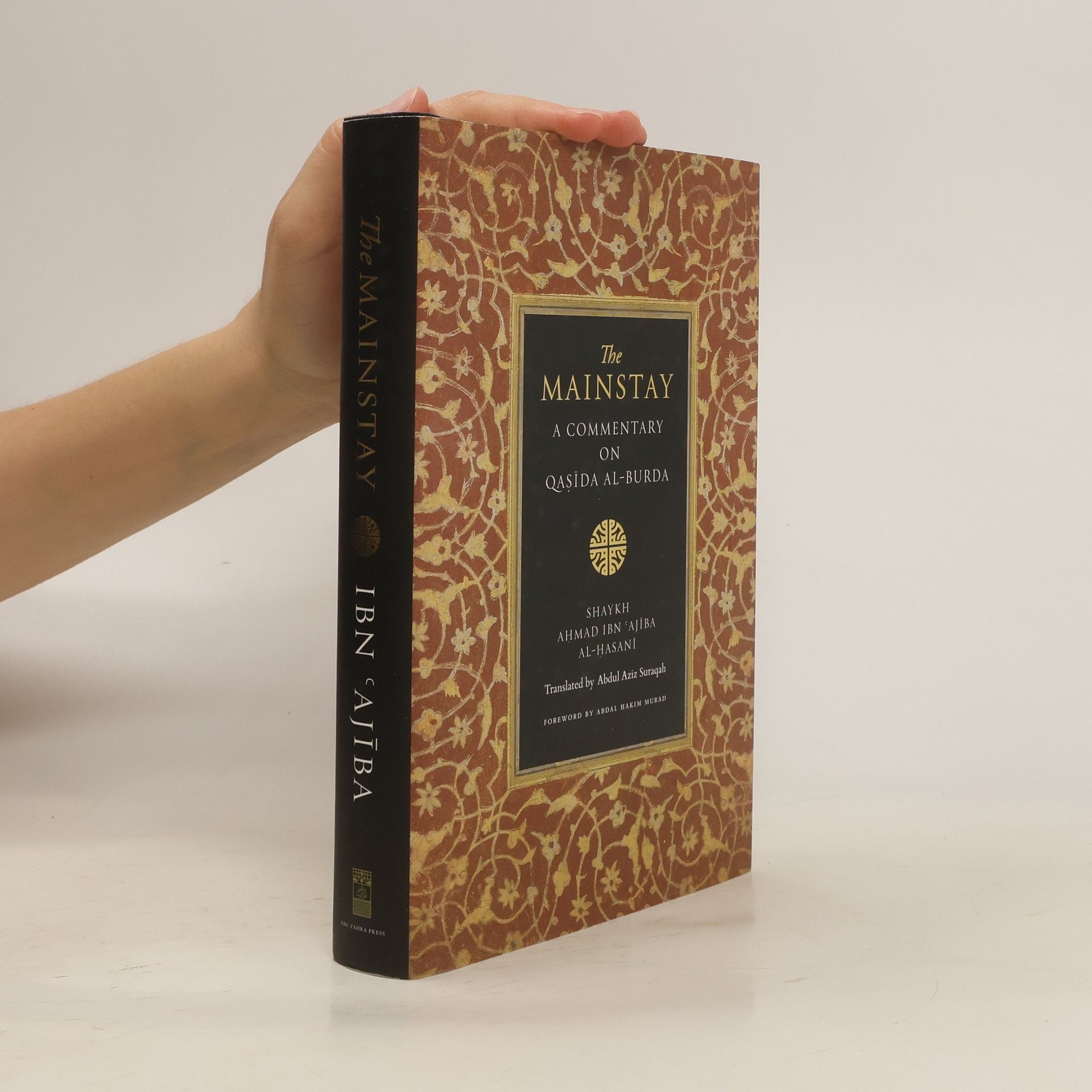The Mainstay
A Commentary on Qasida Al-Burda
Ahmad ibn 'Ajiba was een Marokkaanse heilige uit de 18e eeuw en een vooraanstaand figuur binnen de Darqawa Soefi-orde. Zijn geschriften duiken diep in de islamitische mystiek en theologie, gekenmerkt door een diepgaand begrip van de Soefi-traditie en haar spirituele praktijken. Ibn 'Ajiba richtte zich op spirituele ontwikkeling en de zoektocht naar goddelijke waarheid, een thema dat duidelijk naar voren komt in zijn uitgebreide oeuvre. Zijn teksten bieden lezers inzicht in de diepten van de islamitische mystiek en leiden hen naar innerlijke zelfkennis en devotie.



A Commentary on Qasida Al-Burda
The Chapters of Mary and Ta Ha center on the key figures of Islam's two sister monotheisms, Mary, mother of Christ, and Moses. Ibn 'Ajiba's commentaries on these two surahs give reader access not only to the traditional Islamic view of these prophetic figures, but also on metaphors and symbols to be found in their stories that can of use to anyone following an inner path to God. The Chapter of Mary, in particular, gives readers access to the story of Christ through the perspective of the woman who was chosen to bear him. The Immense Ocean from which this is an excerpt, is a prime example of writing from the North African Sufic tradition. Al-Bahr al-Madid, from which this translation is an excerpt, is the only traditional Quranic commentary in existence which gives both exoteric exegesis and mystical "spiritual allusion" for each verse of the Sacred Book. Since the completion of its publication in 2002, the Arabic version of al-Bahr al-Madid, which existed only in manuscript form before a small excerpt was printed in the 1950s, has sold out three editions. This is a testimony both to its popularity and to a revival of interest in Sufic thought throughout the Muslim world.
Four Gems of Tasawwuf presents a collection of profound teachings from notable Sufi masters. Each gem delves into essential concepts of spirituality, emphasizing the importance of inner purification, love, and devotion to God. The book explores the transformative power of these teachings on personal growth and the journey towards self-realization. Through insightful reflections and practical guidance, readers are encouraged to deepen their understanding of Sufism and cultivate a more meaningful connection with the divine.